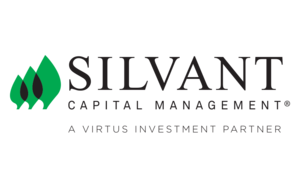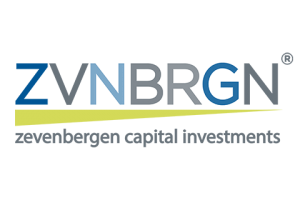In the following video, portfolio managers from Virtus affiliates Silvant Capital Management, Virtus Systematic, and Zevenbergen Capital Management explore artificial intelligence (AI) themes and opportunities from the investment perspective. A transcript follows the video.
Transcript:
Lu Yu, CFA, CIPM, Lead Portfolio Manager, Virtus Systematic
Why is there so much buzz about AI today?
AI is nothing new to us. AI started all the way back in the 1950s. However, we witnessed rapid development in AI models in the last five years, especially after the introduction of Chat GPT. All of a sudden, the whole world is getting very excited by the generative AI, various large language models. What AI can bring to us is improved productivity and more innovation. For example, in customer service, there has been tons of research done showing that using an AI chat model or a chat bot, it can improve about 15% of the customer service productivity at a bank.
In terms of innovation, there has been reports that AI models has helped biotech and pharmaceutical companies to discover new molecules and help drug discoveries. So, there is [also] a big potential down the road in AI adoption into our industry and we're still in the very early stage.
Michael A. Sansoterra, Chief Investment Officer, Senior Portfolio Manager, Silvant Capital Management
Are AI companies living up to the hype?
The underlying fundamentals surrounding AI are indeed aligned with the hype. What we've seen from the hyper scalers, those are the large data center companies that control our social media, our online shopping, our communications, their spend around AI tools has gone from a 20% growth rate in 2023 to over 100% growth rate in 2024. This is literally tens of billions of dollars pumped into the semiconductor companies that support AI tools. Those semi companies, in turn, put that money into semi-cap equipment companies to try to meet increased demand for these products. Literally hundreds of billions of dollars flowing into this industry, real revenue, real profits, real cash flow that is building tools that will change the way we work and live going forward.
Anthony Zackery, CFA, Portfolio Manager, Zevenbergen Capital Investments
How does AI compare with previous disruptive technologies?
Artificial intelligence has similarities and key differences with other technologies that lead us to believe AI will have a larger impact on the global economy than the web, cloud computing, or mobile phones. As a technology, AI supports doing more with less—whether that's time, cost, effort, or risk—and this should result in greater labor productivity, business efficiency, and global prosperity. It will disrupt competitive advantages and business models dependent on legacy ways of doing things, much like the internet and digitization did.
However, the value and opportunity of AI is in how it differs from what came before it. AI tools can predict, pattern match, problem solve, reason, create, and act, replicating human cognition and decision making. Nothing else has come remotely close to achieving this. And the two aspects of AI that we believe are particularly powerful are, one, its ability to improve itself without human intervention. And two, it can serve as a platform for innovation, accelerating research, development, and discovery across all industries. And to frame AI's potential impact, investment bank Goldman Sachs estimates that AI can boost U.S. labor productivity from 1% a year up to 2.5 to 3% a year, from a combination of automation and new inventions.
Michael A. Sansoterra, Chief Investment Officer, Senior Portfolio Manager, Silvant Capital Management
How should investors approach the AI opportunity?
We think investors should consider three stages to investing in AI. The first is where we are now, the building blocks. Those are the semiconductor companies, semi-cap equipment, some select software companies. These are the companies that are creating tools for corporations to use to enhance and embrace generative AI. These companies are showing profit now. So these are, this is the place where most investors are currently focused.
But what you'll see over time is phase two. This will be where productivity starts to be enhanced. The first firms to use these tools properly will see reductions in call centers. We'll see reductions in general office staff, where conversation engines can replace those people and redeploy that labor into other, more productive portions of the company.
The third stage is where it gets really interesting and this is a ways away, but this is where that era of innovation really shows up and this will be new products. You'll see a faster time to market with pharmaceuticals. You'll see code writing itself at software companies. Building systems at manufacturing being far more automated than even now. The list goes on and on. A large number of industries can get more productivity from generative AI as there's less people required and it's a more systematic process. We think the companies that best embrace those types of behaviors will show the highest ROI [return on investment] and could be really good winners over time.
Anthony Zackery, CFA, Portfolio Manager, Zevenbergen Capital Investments
Where do you expect to see the greatest benefit from AI going forward?
Many industry observers have equated the enthusiasm for AI to the California gold rush of the 1800s. Using this analogy, we're still in the picks and shovels stage where equity value has flowed to the companies providing the compute, networking, storage, HVAC, and electrical building blocks to support AI data centers and software development. Longer term, we believe those companies who use and deploy AI most creatively and resourcefully at scale will drive the highest shareholder value creation. Of course, we have more questions than answers at this point, and we're sympathetic to the argument that consumers, not corporates, could capture most of the value of this technological innovation.
Research firm IDC predicts global AI spending could top $500 billion in 2027. That's three times the level seen in 2023. And we believe digitally oriented, knowledge intensive, and manually repetitive industries will likely spend the most on AI in the coming years. And we believe AI will reach nearly every industry around the world, and the companies slow to embrace AI will lose business to those who lean in.
Lu Yu, CFA, CIPM, Lead Portfolio Manager, Virtus Systematic
How is the investment industry implementing AI?
We are living in a world with big data, tons of data. And in the data that we have today, only 20% of the data are structured data, those are the numerical data. 80% of them are non-structured data. That includes texts, images, voices, etc. With the help of AI, we are now able to attack this nonstructured data. In our investment industry, in asset management, right now, a lot of the managers are starting to attack the textual information. They read analyst reports, the company transcripts to get the sentiment from these company management and analysts. And we believe it will help especially the quantitative investors and quantitative managers to improve their alpha model or we call the stock selection model to pick stocks. There is a lot of the potential there and it’ll bring a lot of the benefits because in the past, we can only analyze the numbers such as the financial statement data, earnings estimate data, and the price changes. But now we can also analyze the text information as well.
The risk of using or building the AI model is you wanted to avoid an overfitting model. This is a very typical problem of any machine learning AI model is that you build a model that fits so well into the history that it may not work in live production. So, this drills down to how you set the ground truth when you train the AI model so that it will work both in sample and out of sample. And of course, we also need a human oversight as well in training the AI data, AI model, and how you clean your input data involves a lot of your knowledge in investment and finance. And you also need to be able to interpret the outcome from this AI model. Therefore, the human oversight is definitely needed.
The commentary is the opinion of the subadvisers. This material has been prepared using sources of information generally believed to be reliable; however, its accuracy is not guaranteed. Opinions represented are subject to change and should not be considered investment advice or an offer of securities.
All investment carry a certain degree of risk, including possible loss of principal.
Past performance is no guarantee of future results.
Please consider a Fund’s investment objectives, risks, charges, and expenses carefully before investing. For this and other information about any Virtus Fund, contact your financial professional, call 800-243-4361, or visit virtus.com for a prospectus or summary prospectus. Read it carefully before investing.
3638453



